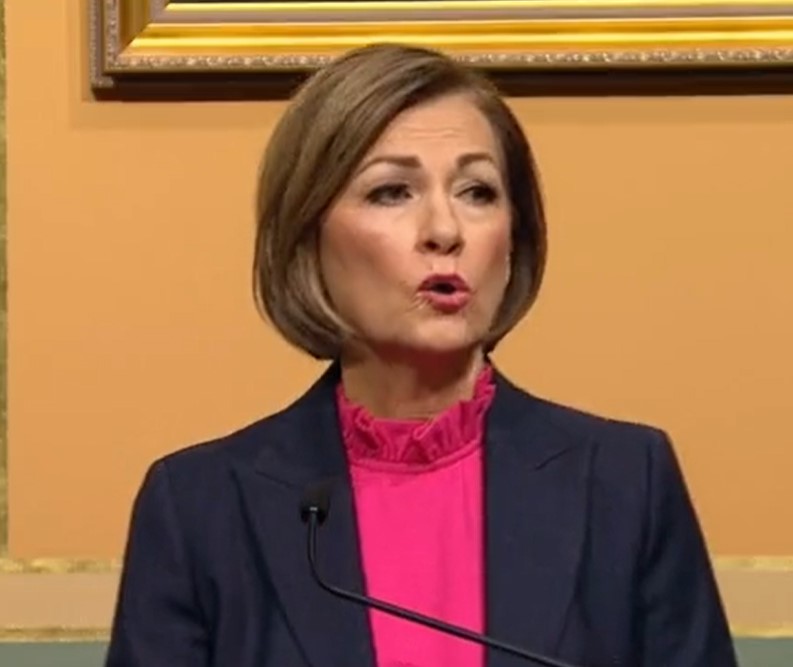Today, Governor Reynolds signed into law the first bill of the 2022 legislative session. House File 2316 increases the state’s public education budget for fiscal year 2023 by 2.5% per pupil, resulting in $159 million in new money for Iowa’s public schools.
“Providing a quality education for the next generation of Iowans is one of our most important responsibilities,” stated Gov. Reynolds. “The state’s significant and responsible funding increases year-over-year for more than a decade helps ensure that Iowa has the strong public education system necessary to support the success of our students and our state.”
Fifty-six percent of the state’s entire budget funds public education alone. In fiscal year 2023, which begins July 1 of this year, that amount will total more than $3.6 billion. Eighty percent of the education budget goes to preK-12 schools including more than $3.5 billion for state foundation school aid and nearly $29.5 million for transportation equity.
Additionally, the state’s investments in STEM education, work-based learning and registered apprenticeship programs enhance the educational experience for Iowa students.
More than $700 million in federal Elementary and Secondary School Emergency Relief (ESSER) funds remain unused by Iowa’s public school districts for pandemic relief. Information and guidance on the relief packages are available on the Iowa Department of Education website here.
Reynolds also issued information today about how teachers, law enforcement officers and child care workers can claim their pandemic-related $1,000 retention bonuses, which she announced last month.
“I can’t thank each of these dedicated public servants enough for their persistence during one of the most difficult times in our state and nation,” said Gov. Reynolds. “This is one way we are able to thank them for coming to work each day to positively impact our children and keep our communities a safer place.”
$1,000 premium pay lump-sum payments will be disbursed through different funding sources and therefore have different processes and tracking requirements.
Teachers: The Department of Education will work to issue payments to qualifying teachers at public schools, accredited nonpublic schools, independently accredited nonpublic schools, and state-operated schools through their respective employer.
Certified Peace Officers: Local law enforcement agencies will request payment on behalf of their qualifying employees through Iowa Grants Online. Submissions will be reviewed by the Iowa Law Enforcement Academy prior to payment via mailed individual check by the Department of Administrative Services. Certified peace officers employed by the State of Iowa will receive payment through their regular state paycheck.
Corrections Personnel: Qualifying Department of Corrections corrections officers and medical personnel will receive payment through their regular state paycheck.
Child Care Workers: Qualifying child care workers will be able to apply through the Department of Human Services’ web page starting later this month.
All qualified individuals receiving a $1,000 payment through the Iowa Worker Premium Pay Program should receive it this spring. Final counts and totals will be made available by the Governor’s Office upon conclusion of the program this spring.

















